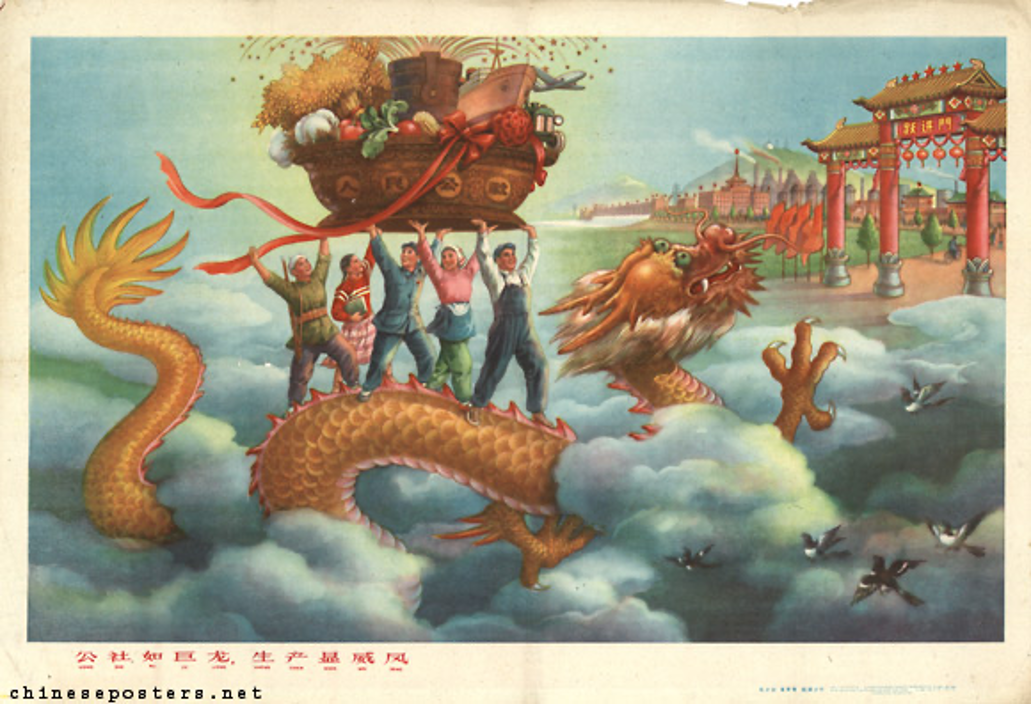The past few months have been revealing, haven’t they? We’ve learned that our modern economies are far more fragile than we thought and that most of us are not as prepared for a crisis as we probably should be (yours truly included). We’ve also learned of America’s bizarre obsession with exotic cats (or at least TV shows about exotic cats) and China’s taste for exotic foods, like bats. It was not always this way. Some of the wilder aspects of China’s gastronomic scene can be traced back to only a few decades ago, practically yesterday for a culture with thousands of years of history. The following account is not meant to be political or to contribute in any way to the “blame game” over the pandemic. It is intended only to illustrate the point that good leadership matters a great deal and that it is often through crises that good and bad leadership is revealed…
If you do a Google search for the worst disasters in history, you’ll find that at the top of the list is a famine that took place in China from 1959-1961. The terrible truth behind this disaster was that it was mostly man-made. It started when Mao Zedong’s government implemented a major overhaul to the country’s agricultural system called “The Great Leap Forward”. The sweeping changes came with a strong message – get on board or deal with severe consequences. Communist party officials, many with little experience in agriculture, were charged with implementing the rollout to ensure swift adoption and compliance. It soon became apparent to the farmers working in the fields that the new policy was seriously flawed; however, party officials whose incentives were based on producing results under the new policy were not eager to draw attention to the problems. Rather than delivering the bad news, they inflated their reports, staged phony results during dog and pony-type visits from Beijing VIPs, and created some of the most oppressive conditions imaginable for the poor farmers. The bureaucracy and toxic culture of fear fostered by the leadership prevented any course corrections until it was far too late. The magnitude of the disaster is not fully known, but some estimate that as many as 45 million souls were lost to starvation and death due to what was by any measure an epic failure of leadership. Even more disturbing than the numbers are the stories of those that lived through it, and the horrifying means by which they survived.
This tragic period in China’s recent history is full of cautionary lessons for today’s leaders. It’s an extreme example of how badly things can go when leaders become disconnected from the reality of their constituents. Even the most well-intentioned leaders can be found guilty of this leadership sin when they fail to listen and discern, become overly dogmatic, or rely too heavily on the game of “telephone” that often gets played in organizational hierarchies. The best leaders know that good decisions need good data, and so searching for it wherever it might be found becomes more important to them then respecting the chain of command or insulating themselves from bad news and “details”. Perhaps the best way to build a solid feedback loop is to cultivate a culture of truth, transparency and shared responsibility for outcomes across the entire organization. Isn’t this the model given to us in scripture? Consider how the scriptures elevate the status of every Christ-follower to a shared responsibility for leadership: “But you are a chosen people, a royal priesthood, a holy nation, God’s special possession, that you may declare the praises of him who called you out of darkness into his wonderful light.” (2 Peter 2:9 NASB) In this dark season of “social distancing,” may you find ways to “turn the lights on” so that you can make the right calls, and may your best leadership be revealed.


